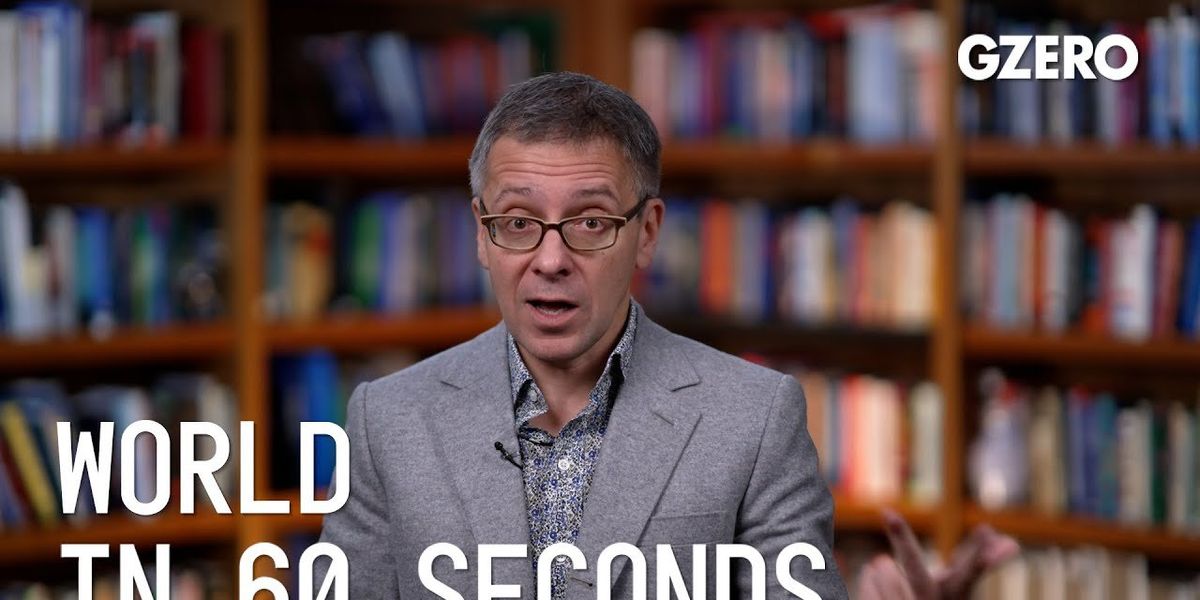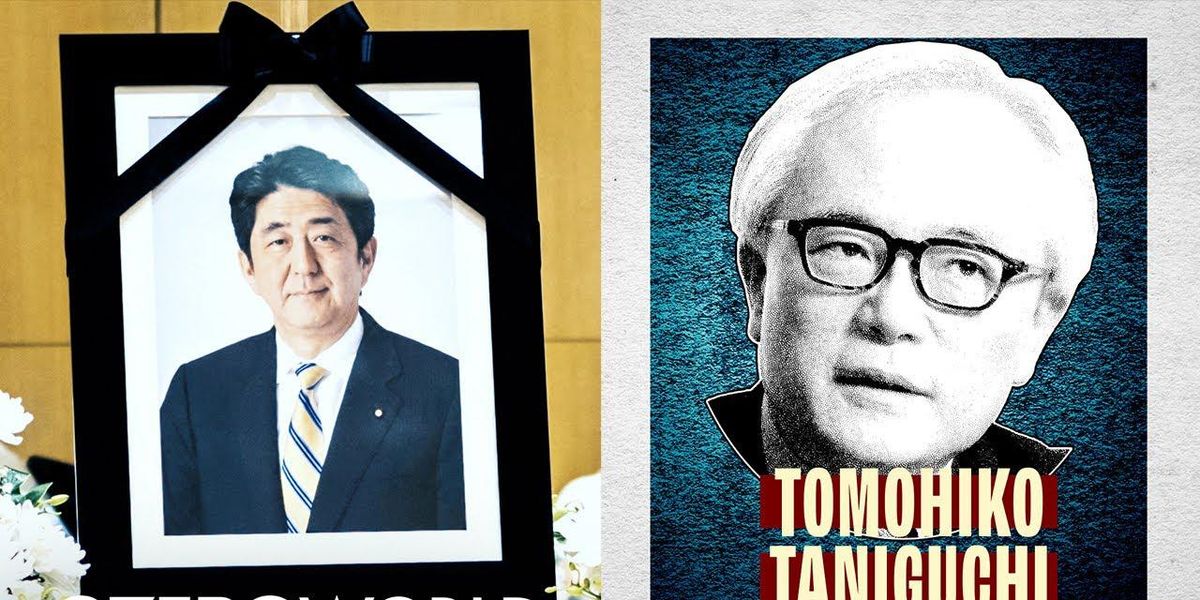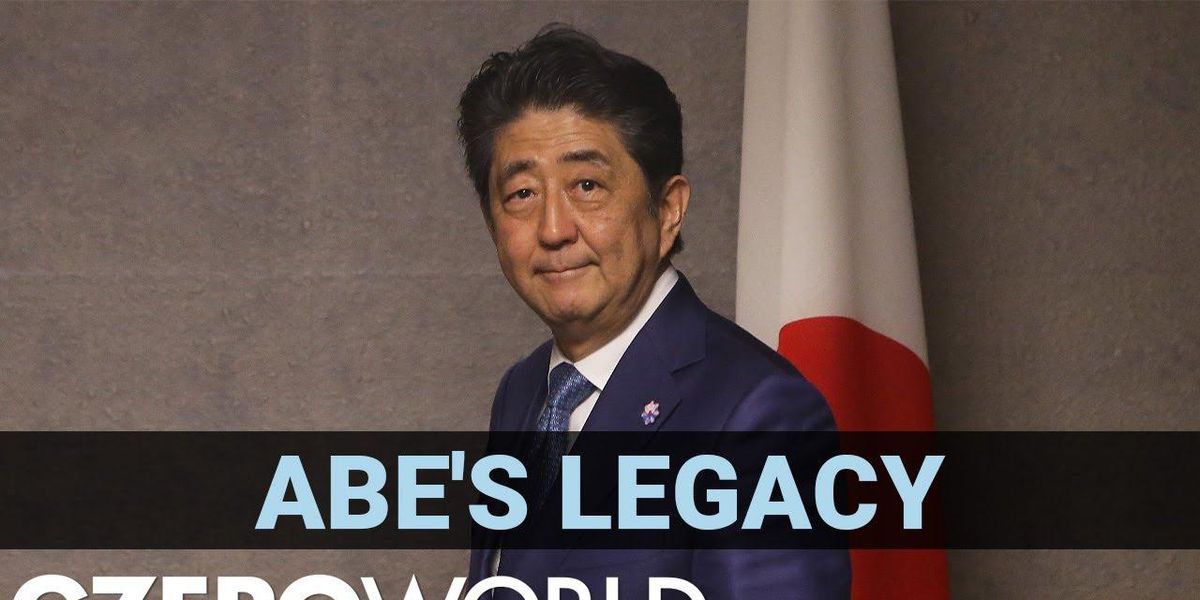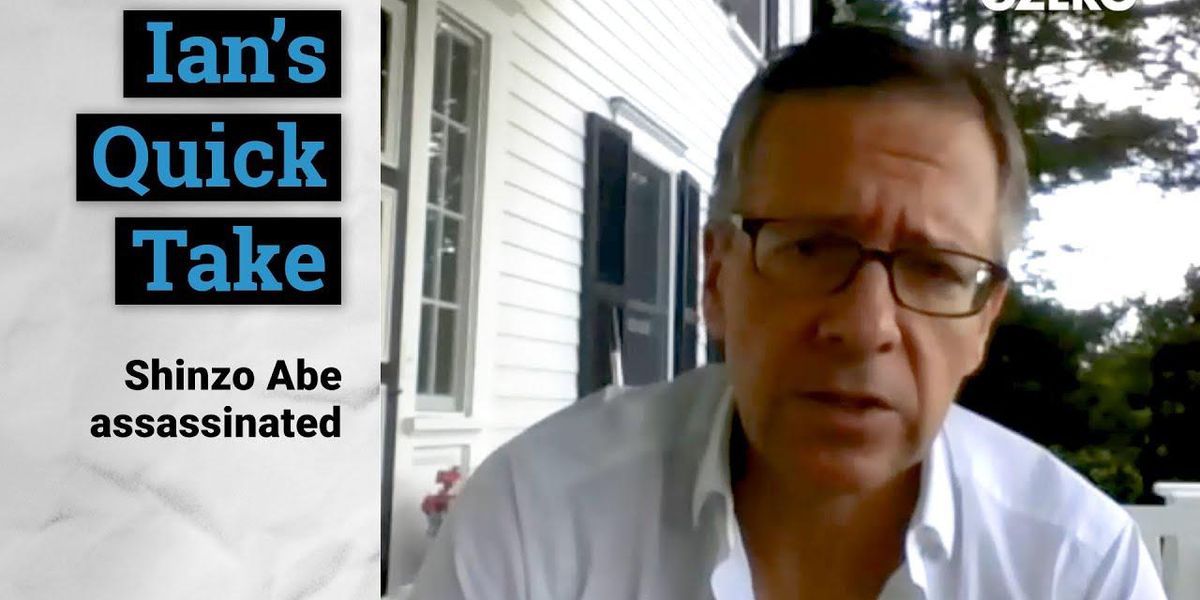Trending Now
We have updated our Privacy Policy and Terms of Use for Eurasia Group and its affiliates, including GZERO Media, to clarify the types of data we collect, how we collect it, how we use data and with whom we share data. By using our website you consent to our Terms and Conditions and Privacy Policy, including the transfer of your personal data to the United States from your country of residence, and our use of cookies described in our Cookie Policy.
quad
U.S. President Joe Biden, Japan's Prime Minister Fumio Kishida, Australia's Prime Minister Anthony Albanese and India's Prime Minister Narendra Modi take part in a Quad leaders summit family photo in Claymont, Delaware, U.S., September 21, 2024.
US bolsters pacific alliance amid China concerns
In his final months in office, US President Joe Biden is looking to bolster the China-wary alliance known as “The Quad,” which brings together the US, Australia, Japan, and India. This weekend he hosted Quad leaders at his home in Wilmington, Delaware.
While the White House claimed the summit targeted no specific country, a joint statement condemned “coercive and intimidating maneuvers in the South China Sea,” a clear shot at Beijing. And in a so-called “hot mic” moment, Biden commented that “China continues to behave aggressively, testing us all across the region.”
Beijing, for its part, sees the Quad as a “threat and challenge to regional peace and security.”
The Quad summit announced expanded collaboration in maritime patrols, disaster relief, cervical cancer vaccines, tech fellowships, and clean energy projects.
The Quad hasn’t always been a top priority for its members – it lapsed almost entirely between 2008 and 2017. But when asked about the future of the group following the approaching departures of both Biden and Japanese PM Fumio Kishida, Australian Prime Minister Anthony Albanese predicted the Quad will endure, while Indian Prime Minister Narendra Modi stated “The Quad is here to stay.” To underscore that, he offered to host the group’s next gathering in 2025.Prime Minister Narendra Modi of the Republic of India during Modi’s Official State Visit to Washington DC.
India and the US talk China
In 2018, the two countries launched the “2+2 Dialogue” to boost defense cooperation and align policy objectives in the Indo-Pacific. India is still reeling from a skirmish in June 2020 — along the 2167-mile unmarked and disputed Himalayan border it shares with China — during which India’s military performed poorly and 20 of its soldiers died. Relations between the two nuclear-armed countries have since soured, giving the US and India a common cause in deterring Chinese aggression.
China has taken the US and India from distant allies to close partners — with the two conducting joint military exercises, working to strengthen the Indo-Pacific Quad alliance, and hosting each other for glitzy state visits. The US has even shown a willingness to overlook India’s human rights transgressions and prioritized deepening ties over Canada’s calls for the US to respond to India allegedly killing a Sikh community leader on Canadian soil.
The meetings are expected to solidify ongoing deals for the US and American companies to produce engines for Indian fighter jets and supply MQ-9 predator drones. , and build semiconductor manufacturing.Trump indictment would make GOP nomination more likely
Ian Bremmer shares his insights on global politics this week on World In :60.
Would a Trump indictment ruin his re-election efforts or reignite his base?
I think everyone out there on the Republican side thinks that an indictment makes it more likely that Trump gets the nomination. When even Mike Pence, who at this point is trying to really differentiate himself from Trump, is out there saying that an indictment would be politically motivated. It means that everyone understands that they cannot back away from Trump on this issue. Gives him more space, gives him more headlines, helps fuel the politics of grievance, makes him more likely to get the nomination.
How does the ICC arrest warrant change things for Putin?
That's kind of connected to that previous question. Well, he's a war criminal, unlike Trump, but also Russia, China, the United States, none of those three countries actually recognize the ICC as a legitimate body, so therefore, it does undermine the ability of the Americans to say, "You see? You see? You should take this guy and you should arrest him," because the Americans wouldn't tolerate that for their own people. But it obviously is enormously embarrassing in terms of Putin's inability and his regime's inability to reengage with the advanced industrial democracies in the world. Also sends a very clear message from China that this is who they're willing to embrace and embrace very publicly. Big, big divide on the global stage on this issue. Only going to get worse.
What new opportunities are there with South Korea-Japan rapprochement?
It's a big deal. If you look at the G-20, this is the relationship that has been incredibly dysfunctional among advanced industrial democracies, and it now has been patched up. That means that Japanese export controls on semiconductors and inputs for South Korea, no longer there, means that they are reengaging their shuttle diplomacy, means they're reengaging on military and intelligence cooperation, makes it more likely that the South Koreans might be invited to join the Quad, makes it more likely that Japan and South Korea together could join AUKUS. That's really important for America's two most significant military allies in Asia, and going forward, something that the Chinese are going to be quite concerned about.
- What We're Watching: Putin in Mariupol, Israeli-Palestinian talks ... ›
- Trump’s weapon of mass (GOP) destruction ›
- What We're Watching: Putin's ICC defiance, Israeli-Palestinian talks ... ›
- Will Japan grow its population before it's too late? ›
- What We're Watching: Drone drama, DeSantis vs. Ukraine, Japan ... ›
- Trump's indictment is problematic - GZERO Media ›
- Trump indicted on federal charges - GZERO Media ›
- Timing on Trump's federal trial has huge implications - GZERO Media ›
- Why you should care about the legal case against the Trump Organization - GZERO Media ›
- Ian Explains: Has a US president ever been arrested before Trump? - GZERO Media ›
Reflecting on Shinzo Abe and how his legacy will impact Japan's future
Japan was rattled by the shocking assassination of former Prime Minister Shinzo. Ian Bremmer speaks to longtime Abe adviser Tomohiko Taniguchi about Abe's foreign policy legacy.
In a GZERO World interview, they discuss whether current PM Fumio Kishida can pick up where his old boss left off, and how Abe's untimely death might ultimately change Japan. Is the time right to now realize Abe's unfulfilled dream of amending Japan's postwar pacifist constitution?
Taniguchi also shares how he felt when he found out his close friend had died. "I was filled with a lot of but different emotions all at the same time," he tells Ian. "Disbelief, grief, [but] the strongest emotion, of course, was anger.
In the future, Taniguchi hopes that the legacy of Japan's "cheerleader-in-chief" will help the country change for the better.
- Japan's “JFK” moment: Shinzo Abe assassinated - GZERO Media ›
- How Shinzo Abe's positive legacy could shape Japan's future ... ›
- Podcast: As Japan reels: examining Shinzo Abe's legacy & Japan's ... ›
- Shinzo Abe's goal of militarization & PM Kishida's “golden ... ›
- Will Shinzo Abe's dream come true now? - GZERO Media ›
- Grief & controversy in Japan for Shinzo Abe's state funeral - GZERO Media ›
- Grief & controversy in Japan for Shinzo Abe's state funeral - GZERO Media ›
How did Shinzo Abe change Japan, and the world?
The late Shinzo Abe, Japan's former PM, often doesn't get enough credit for bolstering the morale of young Japanese, explains Tomohiko Taniguchi, Abe's former adviser and close friend, who spoke with Ian Bremmer on GZERO World.
On foreign policy, he is considered the architect of the Quad dialogue with the US, India, and Australia, though he failed to realize his dream of reforming Japan's constitution.
Taniguchi says Abe also tried his best to make peace with Russia, just falling short of signing a treaty to resolve the dispute over the Kuril Islands (which the Japanese refer to as the Northern Territories).
"Japan, unlike any other advanced nations, is encircled by [the] three undemocratic, militarist, authoritarian, nuclear regimes of Russia, North Korea, and China," he adds. "Shinzo Abe wanted to decrease the tension at least from Russia — to little avail."
Watch the GZERO World episode: Assassinated! Japan’s grief & how Shinzo Abe’s goals will shape Asia
- Japan's assertive foreign and economic policy reflect Abe's legacy ... ›
- Will Shinzo Abe's dream come true now? - GZERO Media ›
- Japan's “JFK” moment: Shinzo Abe assassinated - GZERO Media ›
- Japan's Shinzo Abe assassinated - GZERO Media ›
- Japan’s history of political assassinations - GZERO Media ›
- How Shinzo Abe's positive legacy could shape Japan's future - GZERO Media ›
- Grief & controversy in Japan for Shinzo Abe's state funeral - GZERO Media ›
- Grief & controversy in Japan for Shinzo Abe's state funeral - GZERO Media ›
- Podcast: As Japan reels: examining Shinzo Abe’s legacy & Japan’s future with his friend and adviser - GZERO Media ›
- Assassinated! Japan’s grief & how Shinzo Abe’s goals will shape Asia - GZERO Media ›
Japan’s “JFK” moment: Shinzo Abe assassinated
Ian Bremmer's Quick Take: Hi, everybody, Ian Bremmer here. And I'm very sad to be talking about this shocking tragedy in one of the world's most stable democracies, the assassination of Prime Minister Shinzo Abe.
Gun violence in a country that experiences virtually none of it. The assassination of the country's longest serving prime minister. It is a JFK moment for Japan, maybe even bigger.
I've known Prime Minister Abe for well over a decade. And I will tell you, he is unusually charismatic for a Japanese leader. Open and friendly and put his hand on your shoulder, on your back when he talks to you. I mean, frankly, almost Clintonian in that regard in a Japanese context. And also willing to push ideas in ways that other leaders have not been. Without question, one of the most popular leaders I've ever encountered from Japan. Known for all sorts of things. Abenomics everyone talked about coming from this old Japanese proverb that when one arrow would be broken, three arrows wouldn't fail. So the three arrows of Abenomics, the monetary easing where the yen fell massively, fiscal stimulus and then growth strategy where you focus on private investment and personal consumption in a country that was having its demographics shrink. Not an easy thing to do.
Abe was particularly proud of pushing for women in positions of power alongside his Abenomics, what he called Womenomics. And it's kind of critical. In a place where you'd go to business meetings and the only women you'd see all week were the ones that were serving you tea, Japan desperately needed to push to bring women into positions of respect and authority. And Prime Minister Abe was really the first PM that I encountered that was willing to do something about that. You also saw it in his personal life with an outspoken wife, Akie, who was very much involved in politics. I remember when Abe was pushing for nuclear power in Japan and it was deeply unpopular in the country. It was one of these things that you would actually see people demonstrate against and his wife was publicly opposed.
And it's something that he would talk about almost sheepishly occasionally when it was an issue of debate in society. He was a strong ally of the United States of course. He pushed hard for the Trans-Pacific Partnership, even when it was pretty clear that Obama couldn't get it done. And he's one of the reasons why there now is the CPTPP, which is the biggest high standard international trade deal that's been done recently. Abe's free and open Indo-Pacific strategy was a focus on democracies across the region and including the United States. And was really the catalyst for the Quad that we have today. And Abe had the best personal relationship with the Narendra Modi back when Modi was running Gujarat and Abe went to visit him. Very unusual for sitting prime minister to do that with a governor. And India's already announced a national day of mourning on the back of that relationship. And also a strong ally of the United States. And by the way, even with President Trump, who Abe personally could neither understand and he didn't really like him. And certainly, I mean, they were all walking on eggshells before meetings and Abe would laugh about how he would show up and Trump would have all of these numbers that made no sense to him, but he understood how to manage that personal relationship. And did a better job of it frankly, than just about any other leader internationally. Certainly among the advanced industrial democracies.
You'd have to look to the Saudis or the Israelis to find leaders that had better personal relationships forged with Trump.
And I think that helped stabilize and strengthen the Japan-US relationship a great deal. Abe had his share of controversies. To be clear, he was from the more nationalist wing of the party.
He visited the as Yasukuni War Shrine, which caused trouble for Japan relations with China in particular. He wanted to change the constitution of the country to build up the military beyond self defense. He was in some ways kind of like Olaf Scholz of Germany, but without the Ukraine invasion, right?
And it was all about China. And I remember when I would bring up China with him, it was the one time that you would see his pulse race. I mean, you could see his eyes flashing, even the vein on the side of his neck stand out when suddenly China was the topic of conversation in a briefing. And he was convinced that China wanted supremacy in the region and the world, eventually. And that while it was a near-term danger to Taiwan, it was eventually a critical national security danger to Japan. And I would say that one of the biggest dangers here is that if there's any sign of happiness or good riddance from China's leadership on the back of Abe's assassination, that will be met with an extremely sharp and even dangerous reaction from Japan. I note there's already a lot of that kind of response on Chinese social media and the Chinese government needs to be very careful about how they tread here.
But at home, I should be clear that the Japanese nation is not just stable, it is unified. There will be an extraordinary outpouring of sympathy for the prime minister. It will certainly help Prime Minister Kishida and his Liberal Democratic Party in upcoming parliamentary elections.
Kishida was already the domestically strongest leader on the G7 stage in the summit a week ago.
And since then, of course, Boris Johnson has resigned and now this. Most importantly, I guess I should just say my sadness. I'd like to share with all of my friends and colleagues in Japan.
So many of whom I saw just last week in what seems like much happier times in Tokyo.
I had great respect and admiration for Abe Shinzo and will miss him. Thanks.
For more of Ian Bremmer's weekly analyses, subscribe to his GZERO World newsletter at ianbremmer.bulletin.com
- Abe is out. What's next for Japan? - GZERO Media ›
- Has this man lost Japan? - GZERO Media ›
- Japan's assertive foreign and economic policy reflect Abe's legacy - GZERO Media ›
- Japan’s history of political assassinations - GZERO Media ›
- How Shinzo Abe's positive legacy could shape Japan's future - GZERO Media ›
- How did Shinzo Abe change Japan, and the world? - GZERO Media ›
- Grief & controversy in Japan for Shinzo Abe's state funeral - GZERO Media ›
- Grief & controversy in Japan for Shinzo Abe's state funeral - GZERO Media ›
- Podcast: As Japan reels: examining Shinzo Abe’s legacy & Japan’s future with his friend and adviser - GZERO Media ›
- Shinzo Abe’s goal of militarization & PM Kishida’s “golden opportunity” to reform Japan - GZERO Media ›
- Assassinated! Japan’s grief & how Shinzo Abe’s goals will shape Asia - GZERO Media ›
Australia's new government: shake up at home, steadiness abroad
Anthony Albanese, Australia’s newly elected prime minister, hasn’t wasted any time since being sworn in on Monday. After taking the oath of office, he immediately boarded a flight to Tokyo to meet with Australia’s Quad partners – India, Japan and the US – to talk China.
Indeed, the unusually hasty political transition was not lost on President Joe Biden, who quipped that “if you fall asleep that's okay” – a nod to Albanese’s campaign trail hangover and/or jet lag. But Albanese fought the urge to nap because he has a jam-packed agenda, which includes bilateral meetings with Prime Ministers Narendra Modi and Fumio Kishida as well as Biden.
Albanese, the son of a single mum who grew up in public housing in Sydney, takes the reins as the country’s economy is still reeling from the enduring pandemic. What does the election of his center-left Labor Party mean at home and abroad?
The view from home: A massive shakeup
Albo didn’t win; ScoMo lost: The 2022 federal election will go down in history as a watershed. The Labor Party’s victory ended a decade of conservative rule under the Liberal-National coalition headed by Scott Morrison. It’s only the fourth time since World War II that Labor has won an election while serving in opposition.
Still, the results were hardly a ringing endorsement of Albanese’s blah vibe and light-on-detail policy agenda: just one-third of the Australian electorate cast a ballot for the Labor Party, less than it scored in 2019 and a record low for an incoming government.
The teal wave. To be sure, Labor picked up seats and managed to make gains in some traditionally safe Liberal electorates. But the biggest political shift is reflected in the rejection of the dominant mainstream political parties in favor of half a dozen independent candidates – mostly professional women backed by a pro-climate group – in urban areas where the Liberal Party hemorrhaged support.
This phenomenon – dubbed the teal wave because they appeal to fiscal conservatives (blue) who care about climate change (green) – saw moderate women, some of whom have traditionally been aligned with the Liberals, campaign on a more ambitious climate agenda. They also criticized the incumbent party’s macho-brand of politics, whereby it has long failed to nominate women to safe seats or implement gender quotas.
This was a broad rebuke of the Australian political system. For years, both major parties had been accused of sexism and belittling women within their ranks, but the issue was certainly worse within the Liberal Party, a boy’s club that failed to elevate female leaders. A slew of terribly managed sexual assault allegations also contributed to perceptions that the government was woefully out of step with evolving societal expectations about promoting gender equality.
What’s more, the Senate will now be 57% female, while 37% of the House of Representatives will be represented by women, up from 48% and 29% respectively.
Climate. The number one issue for Aussie voters in this election was climate change (30%), followed by the cost-of-living crisis (13%), and the state of the economy (13%). Morrison, who made only tepid commitments to reduce carbon emissions despite the Intergovernmental Panel on Climate Change calling out Canberra for its “lack of consistent policy direction” on the issue, didn’t heed warnings that Aussies wanted him to show greater commitment to the climate and less love for coal.
While Labor’s vague climate agenda is only slightly more ambitious – they aim to mitigate carbon emissions by 43% by the end of the decade compared to the Liberals’ pledge of 26%, while also refusing to ditch coal exports – the party hasn’t adopted the Liberal Party’s notoriously combative stance to the climate conscious community.
“Australian men and women have sent a very clear message to our parliament that we are absolutely committed to addressing the perilous state of climate change,” says Carol Schwartz, founding chair of the Women’s Leadership Institute of Australia.
“We have also sent a clear message that we demand that women’s voices be heard alongside those of men and that we share power, decision-making, and leadership equally,” she says.
The view from abroad: (Mostly) the same.
Australian politics are mostly immune from the sort of globalist v. isolationist tug-of-war seen in the US and Europe. As such, we’re unlikely to see much daylight between Albanese and his predecessor on major foreign policies. For instance, Australia signed on this week to the new Indo-Pacific Economic Framework, a new push by the Biden administration to expand the US’ economic clout in the region.
Despite recent warnings from Chinese state media that he better play nice, Albanese has made clear that he will continue his predecessor’s tough-on-China stance, and work with Washington and other allies to counter Beijing’s bellicose activities in the region. Still, he has shown a willingness to chat with his Chinese counterpart in hopes of improving the relationship in exchange for Beijing ditching trade bans on Aussie goods. (Xi Jinping, however, doesn’t take kindly to ultimatums.)
The ongoing row with China is certainly top of the agenda at the Quad summit, particularly as China’s foreign minister also plans this week to visit the Solomon Islands. This comes just a month after Beijing signed a security pact with the Pacific state, which raised fears that China could be seeking to build a military base on Australia’s doorstep.
Indeed, Canberra and Washington are extremely concerned about China’s ongoing courting of other Pacific islands, like Kiribati. Though it has a meager population of just 120,000 – and a name few people have ever heard of – Kiribati’s strategic positioning midway between the Americas and Asia (and vast fishing resources) make it fertile ground for a great power showdown.
Jump! High high? Whatever the Biden administration wants from Australia – which has long followed Uncle Sam into battles far and wide – you can be sure that PM Albanese will acquiesce.
As democracy erodes: Pakistan’s Hina Khar on “supremely dangerous” global trends
As Russian forces invaded Ukraine, Pakistan's PM Imran Khan, one of Vladimir Putin’s few friends these days, visited Moscow. His trip did not go down well in the US, a longtime ally of Islamabad.
On this episode of GZERO World, Ian Bremmer talks to Pakistan’s former Foreign Minister, Hina Khar, about Afghanistan, her country’s future choices, and, of course, India.
Khar argues that the West needs to accept its responsibility for starving Afghans. She also thinks that the best way to help end the humanitarian crisis is to talk to the Taliban.
Pakistan's former top diplomat also says it's time for her country to take a step back from the global stage to focus on fixing its own problems, and calls out India for its laws against Muslims and moves in Kashmir.
Bonus: as Ukraine fights back against the Russian war machine, ordinary citizens are taking up arms. We interview the leader of The Wolverines, a self-defense group just outside Kyiv.
- The Biggest Global Security Threats - GZERO Media ›
- What We're Watching: Cyberwarfare in Ukraine, Imran Khan in ... ›
- Hard Numbers: Turkey's inflation record, Pakistan seeks Chinese ... ›
- Will Pakistan emerge a winner in Afghanistan? - GZERO Media ›
- As the US withdraws from Afghanistan all eyes are on Pakistan ... ›
- Pakistan's pivot towards Russia - GZERO Media ›




